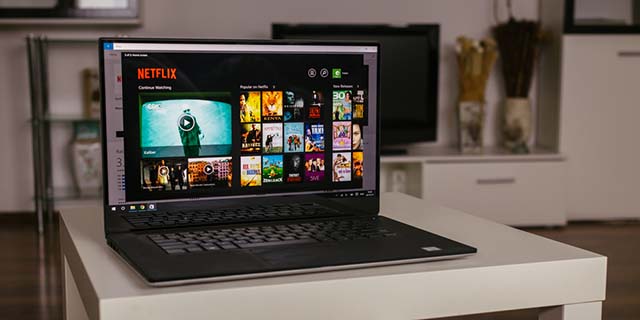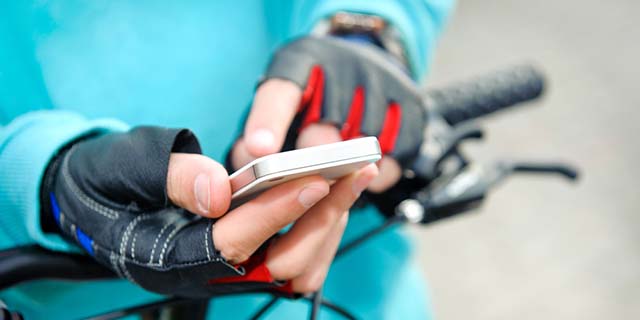

Despite the growing number of benefits provided by smart technologies, privacy and security concerns are still as real as ever. And even though we love the idea of a smart home, this is just one of many things to be aware of before diving in.
The truth is that smart devices may not be as secure as advertised, and at this moment in history, there are several types of devices that you may want to avoid connecting to the Internet of Things. If you let them track your data, who knows how that could be used against you.
For example, did you know that cops in 2014 accessed and used smart home footage in legal proceedings? We need to be careful about what our smart devices actually know about us, or else we could be blindsided by even worse scenarios.
One of the more obvious issues of security is video, which is ironic because security-related devices tend to be the ones that employ video technology the most. And to be fair, there are a number of benefits to using home surveillance cameras.
But there are many dangers, too. For example, an outdoor security camera with Internet connectivity is useful because you can check it at any time from anywhere — but if an online hacker managed to eavesdrop on the video feed, he could deduce where you live.
Or worse, someone could inadvertently spy on you due to a glitch in the system that swaps your video stream with someone else’s feed, as was the case in this Skybell horror story on Reddit.
And that's when our smart devices learned to blackmail us pic.twitter.com/Y7WEf9Cn7g
— Internet of Shit (@internetofshit) August 18, 2015
And if that isn’t bad enough, video recordings are arguably more frightening than video streams. Surveillance cameras usually record and store footage so you can go over them later if necessary — but smart services are moving to the cloud, which means these videos are being held by companies, not you.
It’s eerie to think that someone else could have a video archive of you and your family in your living room. Taken to the extreme, as depicted in the tweet above, companies could even one day blackmail and extort users based on that footage.
In terms of privacy, microphones are scarier than video cameras for two reasons: first, they can potentially pick up sound from any direction instead of needing to be pointed somewhere specific, and second, you’re more likely to be in the presence of a microphone than a video camera at any given moment.
And if you’re in range of a microphone, it could pick up your conversations — even if you think the microphone is off.
In 2013, it was announced that all new Android smartphones would be equipped with an Open Mic feature that’s always listening so it can identify “OK Google” voice commands at any time. That same feature came to iPhones in 2015, similarly always listening for “Hey Siri” voice commands.
For smart home users, however, this “always listening” feature is most prominent in the Amazon Echo personal assistant and in voice-operated smart TVs — two devices that are likely to be in range of any living room conversations you might have. Samsung even warned users about this in early 2015.
To be clear, we aren’t saying that these devices are recording everything you say. We’re just saying that the technology to do so already exists, and if we aren’t careful, these smart devices could make it possible for someone to listen in on private matters.
Between Netflix, Hulu, Amazon Prime and a whole host of other online streaming services, cord cutters are starting to come out on top. And when it comes to smart living in the 21st century, anyone who doesn’t have a media streaming device will soon be left behind.

But here’s the interesting bit: up until recently, TV networks never really knew what you were watching. Rather, TV ratings and viewership numbers were estimated using the Nielsen survey method because TVs have always been a one-way pipe — they’ve never been capable of “reporting” your media habits.
Now that we stream directly from services like Netflix and Hulu, companies can know exact numbers, and this means that our TV and movie watching habits are easily tracked. Combine that with cookies that track our Web habits and you’ll realize that nothing is really private anymore.
One thing that makes smart home automation so useful is the ability to integrate devices with your real-time location. For example, it’s trivial enough to have lights turn on the moment you arrive at home, which can even result in a safer and more secure home.
This is made possible by the always-on GPS location function that’s available in most smartphones today. And even if you don’t use the actual GPS location function, your position can still be extrapolated using cellular and Wi-Fi data.

Some smart devices can actually use this data to learn your travel patterns. When are you usually at home? When are you usually away from home? A device like the Nest Learning Thermostat can even recognize these patterns without GPS.
If a hacker/burglar got a handle on this information, they might be able to deduce the times you’d likely be away from home and use that window of opportunity to break in. Or if you’re ever a suspect in a crime, the data could acquit or incriminate you.
Fitness is another area where smart devices are becoming big, especially devices that fall under the category of wearable technology. And as expected, wearable devices have their own security threats that you need to worry about.
Some gadgets, in conjunction with apps, can record your running paths. Other gadgets, like the Jawbone UP3, can track your dietary routines. There are even devices that can learn your medication needs and remind you when your next dose is up.
In most cases, it wouldn’t be the end of the world if this data got leaked, but that doesn’t mean it would be pleasant either.
The sad thing is that fitness sensors can indeed improve your workouts, and when used properly, certain wearable devices can make you healthier. But as long as privacy remains an issue, most people should probably keep their distance from these gadgets.
When it comes to security, smart TVs do not have a good reputation. Peeping cameras, malware infections, and unauthorized data collection have all happened at one point or another. Think about that the next time you plug a USB drive into your smart TV.

The takeaway here is that you should be wary of any data-holding or data-reading device that has Internet connectivity. Smart TVs are an obvious scapegoat, but other devices like wireless hard drives should raise a few flags, too.
At the end of the day, smart devices know a lot about you — a lot more than you probably think. This is especially true if your smart devices are integrated with things like your email accounts, bank accounts, and credit card numbers.
For example, smart credit cards allow you to consolidate all of your individual cards into a single card for convenience, but do you trust the issuer of that smart credit card to keep your info safe? Or what about IFTTT, which many people use to integrate smart devices with things like social media and Google Calendar?
This isn’t a new risk — services like Mint require that you trust them enough to enter bank account details — but it’s still very real.
We aren’t trying to scare you away from smart home automation. In fact, we really like it and we can’t wait to see how the Internet of Things will continue to evolve. Our aim here is to raise awareness of possible current drawbacks like the ones listed above.
If you’re still interested in smart home stuff, remember that a smart home is cheaper than you think, especially when you factor in ways to save energy and money, and some devices can even increase the value of your home. It’s worth looking into.
Considering how much personal data could be tracked, which of the things in this article bother you the most? Does it turn you off from smart devices altogether? Share your thoughts with us below!
Image Credits: Netflix on Laptop by lculig via Shutterstock, Biker on Phone by Rasulov via Shutterstock, USB Stick Drive by You Can More via Shutterstock




 Fallout 4: Minutemen - When Freedom Calls, The Sight, Taking Independence and Old Guns
Fallout 4: Minutemen - When Freedom Calls, The Sight, Taking Independence and Old Guns Fallout: New Vegas Guide
Fallout: New Vegas Guide Medieval Engineers (PC) Crafting Guide
Medieval Engineers (PC) Crafting Guide Metal Gear Solid V: Ground Zeroes: Guide on How to collect XOF Patches
Metal Gear Solid V: Ground Zeroes: Guide on How to collect XOF Patches Assassin's Creed Rogue Complete Walkthrough, System Requirements, Characters and More
Assassin's Creed Rogue Complete Walkthrough, System Requirements, Characters and More